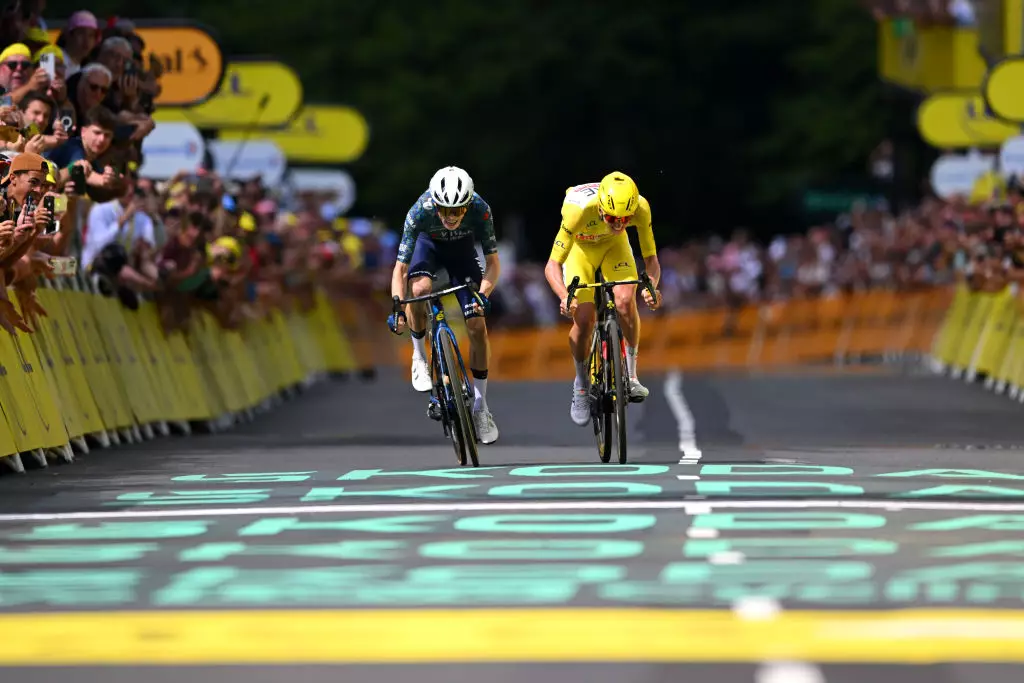The broadcast landscape for cycling in the UK is undergoing significant upheaval, particularly with regard to the Tour de France. Warner Bros. Discovery (WBD), having secured exclusive rights as the sole bidder, now controls the future of cycling’s premier event in the region. While this might suggest a fresh era for coverage, the implications of this exclusive deal raise questions about accessibility and viewer engagement, especially for fans who have come to rely on free-to-air broadcasts.
As the exclusive rights holder, WBD could leverage its existing sports channels under the Eurosport brand, but the concern remains palpable among cycling enthusiasts. The absence of competing bids for the rights indicates a troubling trend—an emphasis on subscription-based services over traditional free-to-air broadcasting, which historically allowed broader access to sporting events. For many fans, the possibility of losing free access to the Tour de France feels like a significant setback for the sport’s visibility in the UK.
ITV’s Departure and Market Dynamics
ITV’s decision to forgo bidding on the cycling rights has sparked discussions on the network’s strategic focus, which appears more aligned with popular sports such as soccer. This shift leaves a vacuum that could potentially alienate cycling fans who appreciate the rich tapestry of sports coverage that ITV has previously offered, particularly with its enthusiastic commentary and fan engagement during past Tours. The dynamic nature of broadcasting rights—as shown through ITV’s pivot towards soccer rights—suggests that cycling may not currently align with the broadcaster’s immediate priorities.
The European Broadcasting Union played a pivotal role in negotiating these rights, facilitating the transition from ITV to WBD. However, with WBD being the only company to step into the bidding ring, one must consider what this signals about the current interest in cycling compared to other sports. Cycling may indeed be enjoying a resurgence, fueled by past Olympic successes and high-profile British cyclists, yet that excitement has not translated into competitive bidding for broadcasting rights.
The implications of this exclusive arrangement are profound. Many cycling fans have voiced concerns that moving away from free-to-air broadcasts risks isolating a portion of the audience that cannot afford subscription fees. The change comes at a time when cycling in the UK has seen significant growth, attributable to performances in the Olympics and prominent wins at the Tour de France by British cyclists. The fear is that cutting fans off from free access will stunt the sport’s potential growth and diminish grassroots interest.
WBD’s decision to explore free highlight packages could provide a lifeline, but this is only a partial solution. While highlights can draw in casual viewers, they are no substitute for comprehensive live coverage. Ultimately, the experience of witnessing the full drama of the Tour in real time holds a unique value, one that condensed highlights cannot replicate. The loss of meaningful participation in sporting events, stemming from a lack of access, can lead to diminished public interest and a slide in the sport’s popularity over time.
It is crucial for WBD to not only consider how it can monetize cycling content through subscription services but also how they can maintain fan engagement and enthusiasm in a shifting broadcast landscape. The model of combining free-to-air highlights with coverage on dedicated sports channels might serve as a viable compromise, striking a balance between business needs and fan loyalty.
Moreover, should cycling’s growing popularity continue to thrive, there may be future opportunities for additional broadcasters to engage with the sport. It’s imperative for stakeholders, including cycling associations and media companies, to come together to strategize on how to maintain and nurture the sport’s audience base.
As we look to the future, the cycling community in the UK must advocate for inclusive broadcasting strategies while adapting to changing media landscapes. With increasing importance placed on accessibility, the sustainability of the sport depends not only on attracting elite talent but also on nurturing a dedicated fanbase that can enjoy the excitement of racing through both digital and traditional means.

